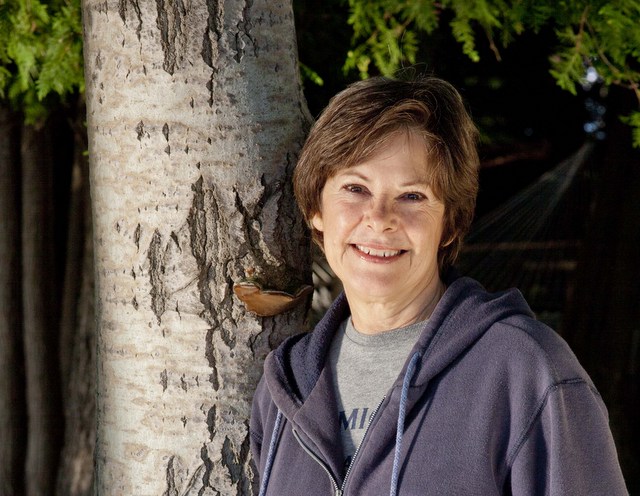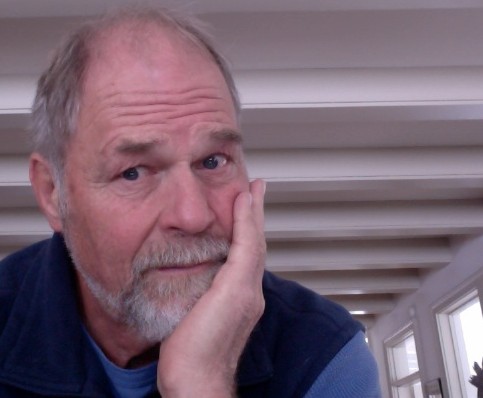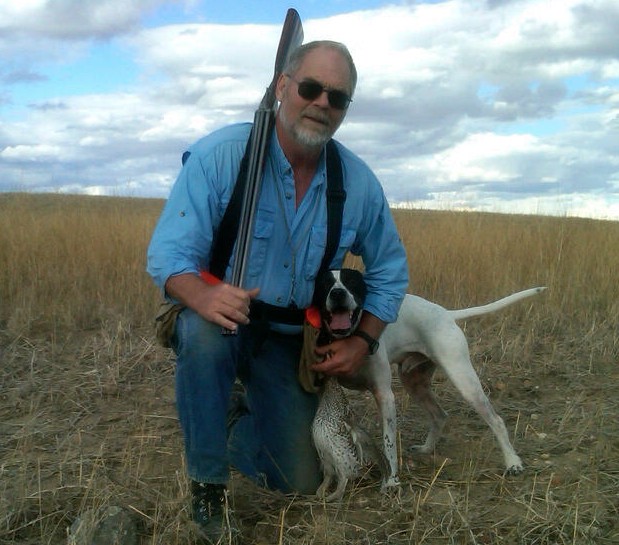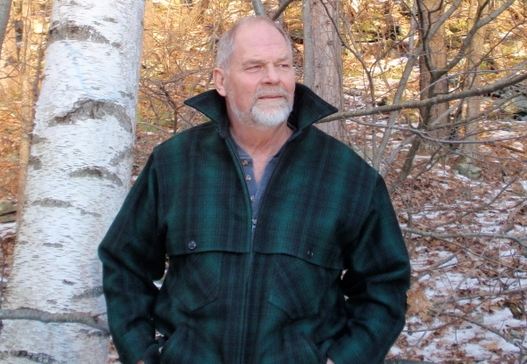Vol. III, No. 12, December 2012
- Calculust: A Mathematical Romance — Jonah Glover
- Keep the Change: Fiction — William Gillespie
- A Short Sad Story: Essay — Sydney Lea
- Thou Beside Me Singing: The April Poems — Leon Rooke
- A Cut: Fiction — Quim Monzo
- Ship of Fools: A Review of Quim Monzo’s A Thousand Morons — Richard Farrell
- Numéro Cinq at the Movies: Ekaterina Vorobyeva’s “Entire World is Mine,” Introduced by R. W. Gray
- Numéro Cinq at the Movies: Andreas Pasvantis’s “December,” Introduced by R. W. Gray
- Shaken Not Stirred, The Author Who Invented James Bond — Steven Axelrod
- The Two Trees, Very Small Works: Woodcuts — Mary Kathryn Jablonski
- My Father’s Artificial Hip, A Cherokee Marble & Other Writing Aids: An Interview with George Singleton—Jason DeYoung
- Without Pedigree: A Review of George Singleton’s Stray Decorum — Jason DeYoung
- Deadlift: Poems — Sharon McCartney
- Limits of Light: Photographs — John Solaperto
- Gare du Nord: Fiction — Donald Breckenridge
Vol. III, No. 11, November 2012
- It’s About Orgasm; It’s Not About A Musk Ox: Interview with Former U.S. Poet Laureate Donald Hall — Anne Loecher
- Who Am I? What the Lowly Riddle Reveals — Julie Larios
- The Pitch: Drawing — China Marks
- Late: Video Poem — Elise Levine
- On a Writer Dying Young: Essay — Richard Farrell
- The Perfume Trees of Arkansas: Fiction — Garry Craig Powell
- at risk or at least? Poems by Nicole Markotić — With an Afterword on her Poetics by Tammy Armstrong
- Numéro Cinq at the Movies: Guy Ritchie’s “Un Rendez Vous” Introduced by Jon Dewar
- At the Bottom of Memory: Video & Installation by Joanne Lyons — Introduced by Kim Aubrey
- The Divine Imagination: Sermon — Hilary Mullins
- Herbert Marcuse: Believing in Ghosts As a Way Toward Philosophy — Jacob Glover
- The Love Gap: Review of Emily Perkins’ The Forrests — Erin Stagg
Vol. III, No. 10, October 2012
- Mountain Visions and Imaginative Usurpations: Essay — Patrick J. Keane
- Angel on Fire: The Gothic World of Sophie’s Choice — Mary Rickert
- Fucked up and Beautiful: Review of Shane Jones’ Daniel Fights a Hurricane — Jason DeYoung
- The Box Does Not Need To Be Square: An Interview with Todd Bartel — Nance Van Winckel
- Books Made of Paper: Essay — Fleda Brown
- Your Dog Makes Me Smile: Fiction — Caroline Adderson
- Numéro Cinq at the Movies: Adrián Cardona, Rafa Dengrá, & David Muñoz’s Brutal Relaxation — Jared Carney
- Even the Done: Poems — Micheline Maylor
- Highs and Lows on the Bay of Fundy: Photographs — Natalia Sarkissian
- The Boundless Chaos of Living Speech: A Homophonic Translation by Hugh Thomas & an Essay by Sarah Bernstein
- Fire & Ice: Photographs — Roger Crowley
- A Fable: Poem — David Helwig
- Blessed With Memory: A Review of Richard Ford’s Canada — Benjamin Woodard
Vol. III, No. 9, September 2012
- A Poetry of Petition: W. B. Yeats’s “The Stare’s Nest by my Window” and Derek Mahon’s “A Disused Shed in Co. Wexford” — Patrick J. Keane
- Big Texas Sky: Composing an Album — Darryl Gregory
- A Message for the Emperor: Fiction — Mark Frutkin
- Childhood — Tom Bauer
- Into the Looking Glass: Memoir — Christy L. Clothier
- Tragically Disproportionate: A Review of Jon McGregor’s This isn’t the Sort of Thing that Happens to Someone Like You — Debra Martens
- Stray Dog Poetics: Poems by Shane Rhodes With an Afterword by Rob Ross
- The Madman and the Seismograph: From Braided Worlds — Alma Gottlieb & Philip Graham
- Numéro Cinq at the Movies: Abbas Kiarostami’s “Where is my Romeo?” Introduced by R. W. Gray
- White Shirts: Essay — Sophfronia Scott
- After this/ I lead you into form: Poems — Gerard Beirne
- The Journey Home: Music In Remembrance — Diane Moser
- Numéro Cinq at the Movies: Lucrecia Martel’s “Pescados” Introduced by Sophie M. Lavoie
- Becoming a Poet: A Way to Know — Sydney Lea
- Bushwacked by Inspiration: An Interview with Steven Heighton — Richard Farrell
- Unmeasured Depths: A Review of Steven Heighton’s The Dead Are More Visible — Richard Farrell
- The Diplomat: Fiction — Christy Ann Conlin
- Sometimes It Is, Sometimes It Isn’t: Fiction — Robert Day
- Picture Me Awake: Poems — Rigoberto González
- The Senses of an Ending: The Grapes of Wrath, Novel and Film — Patrick J. Keane
- David Grossman’s See Under: Love — Jacob Paul
- Healing Waters: Memoir — Harry Marten
- How to Write an Essay — Garry Craig Powell
- Numéro Cinq at the Movies: Jamie Travis’s “The Saddest Boy in the World,” introduced by R W Gray
- Les Amazones: Fiction — Josée Marcotte
- The sound of me stepping on a poem one Monday afternoon: Poems & Images — Ray Hsu
- Bonjour & the Violet Ox: The French Song — Jonah & Jacob Glover
- Building the Maddening Dream: Techniques for Constructing & Conveying Fictional Worlds — Jacqueline Kharouf
- What It’s Like Living Here — from Tiara Winter-Schorr in Manhattan
- Getting Carried Away: Memoir — David Carpenter
- Revisiting Tahrir Square: Photographs & Text — Natalia Sarkissian
- Numéro Cinq at the Movies: Wong Kar Wai’s “Chungking Express,” introduced by R W Gray
- Roboterinner Lied & The House my Grandfather Built: Original Music — Ariane Miyasaki
- Leaving the Zoo: A Fictional Memoir — Patrick J. Keane
- Antarctica: Paintings — Laura Von Rosk
- One Good Hustle: Fiction — Billie Livingston
- Unwrapping Miss Frost: Time & Structure in John Irving’s In One Person — Jacob Glover
- Kate O’Rourke, Virginia Woolf, Samuel Beckett: Wait & Party — Nonfiction by Michael Bryson
- Flirting With Disaster: Aphorisms — Yahia Lababidi
- Numéro Cinq at the Movies: Bryn Chainey’s film for Alcoholic Faith Mission’s “Legacy,” introduced by R W Gray
- Bird Nights: Fiction — Jane Eaton Hamilton
- Je vous présente Véronique: des nouvelles — Gilles Pellerin
- Of Chess & Novels: Interview with Jennifer duBois — Rimas Blekaitis
- Unfolded: Fiction — Sheridan Hay
- Autoportrait: Nonfiction — Edouard Levé
- The Death of Sophistication: A Review of Edouard Levé’s Autoportrait — Jason DeYoung
- It’s All Demons! Horror & Art: An Interview With Susie Moloney — Billie Livingston
- Numéro Cinq at the Movies: Alexander Payne’s “14e Arrondissement,” introduced by R W Gray
- Fault Lines: Fiction — Gerard Beirne
- The Hit, The Film & The Novel — Russell Working (Writer, Actor, Director, Producer)
- The Words Were Said: Poems by Louise Lévêque de Vilmorin — Translated by Marilyn McCabe
- Sacred Connections: A mixed media installation by Elizabeth Babyn — Introduced by Kim Aubrey
- In Caddis Wood: Fiction — Mary François Rockcastle
- Whipping Post & Behind Blue Eyes: Jazz Piano — John Nazarenko
- My Lives Among the Stars: Fiction — Lawrence Sutin
- Numéro Cinq at the Movies: The Goldfish in Miranda July’s “Me and You and Everyone We Know,” introduced by R W Gray
- Gauteng and the Cape Peninsula: Encountering South Africa — Natalia Sarkissian
- Black Boxes: On Reading Jennifer Egan’s Twitter Story — Bruce Stone
- The Man With No Name Rides Into The Classroom: A Review of Detachment — Richard Hartshorn
- Women Who Smoke: Fiction — Sybil Baker
- What It’s Like Living Here — From Lisa Roney in Orlando
- The Battleship of Maine: Nonfiction — Jordan Smith
- Tweet rebelle de @pierrepaulplau: Twitterature — Jean-Yves Fréchette
- Vee: Fiction — T. Greenwood
- Numéro Cinq at the Movies: Roman Polanski’s “A Therapy,” introduced by R W Gray
- Escape and Escapism: The Jane Whitefield Novels of Thomas Perry — Steven Axelrod
- The Science of Writing: An Interview with Nick Arvin — Jacqueline Kharouf
- The Valley of the Shadow: Fiction — dee Hobsbawn-Smith
- Capturing the Equivalences: Interview With Translator Steve Dolph — Richard Farrell
- Scars: Fiction — Juan José Saer
- Desperate Wagers: A Review of Scars by Juan José Saer — Richard Farrell
- What It’s Like Living Here — From Jennifer McGuiggan in Greensburg, PA
- Numéro Cinq at the Movies: Johan Renck’s “Pass This On,” Introduced by R W Gray
- The Goodtime Girl: Fiction — Tess Fragoulis
- Paris Street Live: Photographs — Mark Lavorato
- Of Flowers & Of Fire: Poems — Emily Pulfer-Terino
- What It’s Like Living Here — from Vanessa Blakeslee in Maitland, Florida
- Constructed Spaces: Paintings by Christina Hutchings — Introduced by Kim Aubrey
- Sanctuary from Cliché: A Review of Geoff Dyer’s Zona — Jason DeYoung
- La Danse from Karibu: Jazz Piano — Elizabeth Woodbury Kasius & Heard
- Numéro Cinq at the Movies: Eddie White and Ari Gibson’s “The Cat Piano,” Introduced by Jon Dewar
- Happiness: A Poem — Mark Lavorato
- Letter from Taos: Cowgirls Ride the Trail of Truth — Jean-Marie Saporito
- Heidegger, Floss, Elfride, and the Cat: Fiction — Leon Rooke
- An Awesome Proposal: Nonfiction — Bruce Hiscock
- Numéro Cinq at the Movies: Isabella Rossellini’s “Seduce Me: Noah’s Ark,” introduced by R. W. Gray
- The Lights of Henderson: Fiction — Martha Petersen
- On the Suicides at the NY/Canada Border & Other Poems — Jordan Smith
- What It’s Like Living Here — Wendy Voorsanger in San Mateo
- The Jailed Wizards: A Tale — Mike Barnes
- From The Secret Life of Objects: Memoir — Dawn Raffel
- Numéro Cinq at the Movies: This Is It Collective’s “Don’t Hug Me I’m Scared” — Introduced by R. W. Gray
- Into the Realm of the Dark: Nonfiction — Richard Farrell
- The Ice Man Experience: Sculpture & Words by Tyler & Jack Hodgins
- The Resurrection of Experience: A Review of Andrzej Stasiuk’s Dukla — Jason DeYoung
- Rite of Spring: Essay from Dukla — Andrzej Stasiuk
- Numéro Cinq at the Movies: Jamie Travis’s “Seven Sins: Greed” — Introduced by R. W. Gray
- We Are Meat Machines: Meditation on Death & Dying — Brianna Berbenuik
- Iphigénie en Haute-Ville: Roman de François Blais
- Disappearing Bodies: Paintings — Levi Nicholat
- Letter from Bolivia: Carnaval de Oruro — Diane Lefer
- The Artist: Short Story — Lindsay Norville
- Numéro Cinq at the Movies: Everynone’s “Words,” Introduced by R. W. Gray
- The End of the Story: Fiction — Liliana Heker
- A Nation Plays Chopsticks: Short Fiction — Mark Anthony Jarman
- Crash: Short Fiction — Adrienne Love
- Numéro Cinq at the (So Bad They’re Good) Movies: Godfrey Ho’s “Catman in Boxer’s Blow,” Introduced by Megan MacKay
- Carnival of the Imagination: Interview with Gladys Swan — Joyce Townsend
- How To Write A Novel — Douglas Glover
- The Essay As An Open Field — Robert Vivian
- Two Selves Divided: Poems — Marilyn McCabe
- At Work in the Fields of the Bulwer-Lytton: Short Story — Bill Gaston
- Dancing with the Sacred: Nonfiction by Phyllis Barber
- Numéro Cinq at the Movies: Lucrecia Martel’s “Muta,” introduced by Sophie Lavoie
- Imagined Places: Drawings by Ilyana Martinez — Introduced by Kim Aubrey
- The Untitled (91): Poem — Garry Thomas Morse
- The Raid: Fiction by Eugene K. Garber
- When Bright Faith Dissolves: Essay & Mandala — Laura Catherine Brown
- Letter From Bolivia: Days and Nights in Cochabamba — Diane Lefer
- Numéro Cinq at the Movies: Jamie Travis’s “The Armoire,” introduced by R. W. Gray
- A Man Walks Into A Bar: Fiction by Kate Reuther
- Lonely Oceans: Poems — Gary Moore
- The Madness of Architecture —The Architecture of Madness: Fiction by Svetislav Basara
- Structuring Madness: Notes Toward an Understanding of Svetislav Basara — Taylor Davis-Van Atta
- Naguib Mahfouz, Palace Walk, and Old Cairo: Natalia Sarkissian
- Numéro Cinq at the Movies: Chris Russell’s “Zombie in a Penguin Suit,” introduced by Jon Dewar
- Pho-toems: Nance Van Winckel
- Unskunked: An Essay — Sydney Lea
- Let Us Be Silent Here: Poems in English and Spanish — John B. Lee/Manuel de Jesus Velázquez Léon
- The Voice of Solitude: A Review Of Kjersti Skomsvold’s The Faster I Walk, The Smaller I Am — Mary Stein
- Numéro Cinq at the Movies: Erika Janunger’s “Weightless,” introduced by R. W. Gray
- Tracks: An Italian Memoir — Genni Gunn
- What It’s like Living Here — from Erin Stagg in New Zealand
- Le lit de Procuste: des nouvelles par Gilles Pellerin
- Readiness Practice: A Poem by Kate Fetherston
- Numéro Cinq at the Movies: Rodrigo Gudiño and Vincent Marcone’s “The Facts in the Case of Mr Hollow,” introduced by R. W. Gray
Vol. III, No. 2, February 2012
- Professor O’Blivion Rides Again: Essay — Noah Gataveckas
- The Road: Fiction — David Helwig
- Double Exposure: Interview with Darin Strauss — Richard Farrell
- The Un-creation of the Wor(l)d: Conceptual Poetry as Kabbalistic Trope — Adeena Karasick
- Numéro Cinq at the Movies: Nicholas Humphries’s “The One That Got Away,” Introduced by R. W. Gray
- We Are All From The Camps: A Review of Oksana Zabuzhko’s Fieldwork in Ukrainian Sex — Brianna Berbenuik
- A Map of the Invisible: Paintings — Gladys Swan
- Une Ruine Coquille Vide By Paul Éluard, Music by Poulenc, Sung (& Translated) by Marilyn McCabe
- Numéro Cinq at the Movies: Amorous Delays, Cyborg Women, Writing, and Traveling Trains of Longing — R. W. Gray
- The Columbus Syndrome Redux: Essay — Robin Hemley
- Human Resources: Fiction — Connie Gault
- On Courage: Essay — Richard Farrell
- Numéro Cinq at the Movies: Toby MacDonald’s “Je t’aime John Wayne,” Introduced by Jon Dewar
- Chiaroscuro: A Memoir — Patrick J. Keane
- Sketches of an Orange: A Prose Poem — R. W. Gray
- Moonlit Memories of Immature Genius — Mary Ruefle
- We’ve All Gone to Look for America: Memoir — Samantha Bernstein
- Numéro Cinq at the Movies: Ang Lee’s “The Chosen,” Introduced by R. W. Gray
- Blue Clouds: Fiction — Cynthia Flood
- A&S and Elaine! — Poems by Douglas Goetsch
- The Orange Bird: A Story by Gladys Swan
- Hallway Snowstorm: A Very Short Story by Mark Anthony Jarman
- Numéro Cinq at the Movies: Alicia Duffy’s “The Most Beautiful Man in the World,” introduced by R. W. Gray
- This Poem, Part II, by Adeena Karasick
- The Place of Wendell Berry: Nature Writing in America — Adam Regn Arvidson
- Mark, a play by Lynn Coady
- What It’s Like Living Here, from Liam Volke in Victoria, British Columbia
- The Parkinson’s Diaries, by Steven Axelrod
- Numéro Cinq at the Movies: Tom Tykwer’s “Faubourg Saint-Denis,” introduced by R. W. Gray
- Letter from Taos: Too Horrible, Too Beautiful — Jean-Marie Saporito
- My Search for Jesus Hardwell, Profile & Interview by Ian Colford
- Thoughts on the Meditative Essay: Robert Vivian
- Poems from Jorge Carrera Andrade’s Micrograms
- Manufacturing Dreams: An Interview with Anthony Doerr
- From “The Deep” by Anthony Doerr
- Prayers & Dreams: Poems by Denise Evans Durkin
- Turbulence: Paintings by Anne Diggory
- A Bargain, a short story by Dave Margoshes
- Cave Diving With Einstein, Poems by Laura Behr
- Numéro Cinq at the Movies: Wong Kar Wai’s “There’s Only One Sun,” introduced by R. W. Gray
- Letter from Paris: Life Lessons in Père Lachaise Cemetery — Sion Dayson
- The Mind’s Eye – Character Thought in Fiction, by Erin Stagg





